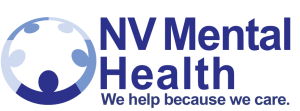Children & Adolescent
NV Mental Health cares about its patients and is dedicated to each and every one’s treatment. We specialize in children and adolescent needs, such as:
Autism Spectrum Disorders:
Three types of ASDs:
Autistic Disorder (also called “classic” autism)
This is what most people think of when hearing the word “autism.” People with autistic disorder usually have significant language delays, social and communication challenges, and unusual behaviors and interests. Many people with autistic disorder also have intellectual disability.
Asperger Syndrome
People with Asperger Syndrome usually have some milder symptoms of autistic disorder. They might have social challenges and unusual behaviors and interests. However, they typically do not have problems with language or intellectual disability.
Pervasive Developmental Disorder – Not Otherwise Specified (PDD-NOS; also called “atypical autism”)
People who meet some of the criteria for autistic disorder or Asperger Syndrome, but not all, may be diagnosed with PDD-NOS. People with PDD-NOS usually have fewer and milder symptoms than those with autistic disorder. The symptoms might cause only social and communication challenges.
Signs and Symptoms:
ASDs begin before the age of 3 and last throughout a person’s life, although symptoms may improve over time. Some children with an ASD show hints of future problems within the first few months of life. In others, symptoms might not show up until 24 months or later. Some children with an ASD seem to develop normally until around 18 to 24 months of age and then they stop gaining new skills, or they lose the skills they once had.
A person with an ASD might:
- Not respond to his/her name by 12 months.
- Not point at objects to show interest (point at an airplane flying over) by 14 months.
- Not play “pretend” games (pretend to “feed” a doll) by 18 months.
- Avoid eye contact and want to be alone.
- Have trouble understanding other people’s feelings or talking about their own feelings.
- Have delay in speech and language skills.
- Repeat words or phrases over and over (echolalia).
- Give unrelated answers to questions. Get upset by minor changes. Have obsessive interests. Flap their hands, rock their body, or spin in circles. Have unusual reactions to the way things sound, smell, taste, look, or feel.
“While ADHD remains a big challenge for a child’s psychiatrist, parents, and teachers, it is also the most common, correctable psychiatric disorder. In my experience the biggest hurdles to treatment remain limited guidance to care givers, limited info about the stimulants, and an older generation’s anecdotal beliefs surrounding a short acting stimulant’s side effects within the client’s family. I realize that many parents are guided by their own parents as to whether their child should take a stimulant (or not), but they should factor in current information and spend appropriate time with care givers.
Having an opportunity to understand all side effects and the safety of today’s longer acting stimulants, helps alleviate parents’ anxiety and initiate treatment. Once medication is on-board, parents and grandparent often witness a child’s gradual improvements in function and calmed behavior. Unfortunately, tolerance may develop requiring an escalation of the stimulant dose, which may carry additional side effects. Again preparation and an understanding of possible side effects offers the best chance of compliance.
It is crucial that the care giver understand when to completely switch a stimulant rather than increasing a dose in the midst of primary stimulant’s side effect. Maintaining a strong communication line with care givers, including discussing all options and involving parents in decisions, helps ensure smooth transitions.
Here is short intro to ADHD. Also visit following link.”
[/one_half_last]

